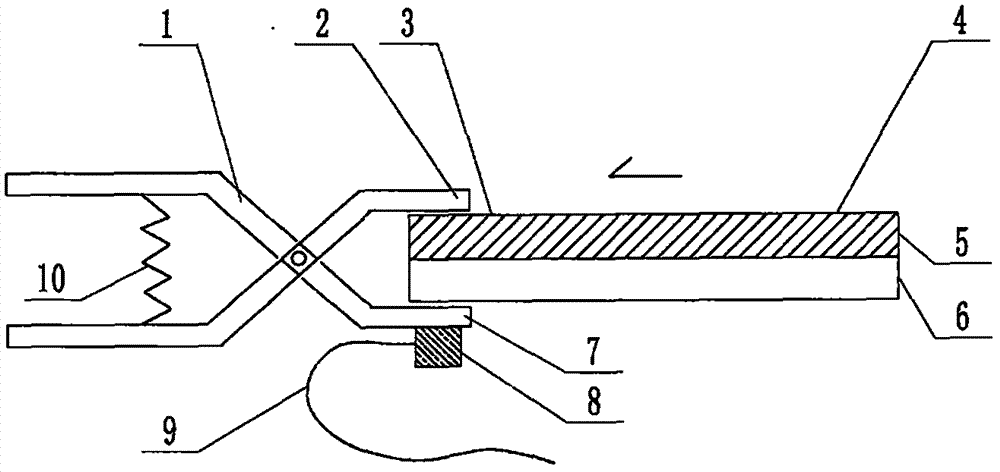Microfluidic chip device for detecting various tumor markers by using fifteen channels in combined manner
A technology of microfluidic chips and tumor markers, which is applied in the field of microfluidic chip devices, can solve the problems of fine liquid flow, which have not been properly solved, and large flow resistance.
- Summary
- Abstract
- Description
- Claims
- Application Information
AI Technical Summary
Problems solved by technology
Method used
Image
Examples
Embodiment Construction
[0076] exist figure 1In the example shown in this case, the main point of this example is that the structure of the device includes a multi-channel microfluidic chip, and the structure of the microfluidic chip includes a substrate 5 and a cover sheet 6 that are attached to each other and installed together. , the substrate 5 and the cover sheet 6 are both plates or sheets, the surface of the substrate 5 facing the cover sheet 6 contains a channel structure formed by a molding process or an etching process, the substrate 5 also contains a window structure connected to the channel structure and pierced through the substrate 5 through a molding process, an etching process or a simple punching process. The substrate 5 and the cover sheet 6 that are mounted together A microfluidic chip containing a pipeline structure and a liquid pool structure connected thereto is constructed. The structure of the pipeline is located at the interface area where the substrate 5 and the cover sheet ...
PUM
| Property | Measurement | Unit |
|---|---|---|
| particle diameter | aaaaa | aaaaa |
| diameter | aaaaa | aaaaa |
| length | aaaaa | aaaaa |
Abstract
Description
Claims
Application Information
 Login to View More
Login to View More - R&D
- Intellectual Property
- Life Sciences
- Materials
- Tech Scout
- Unparalleled Data Quality
- Higher Quality Content
- 60% Fewer Hallucinations
Browse by: Latest US Patents, China's latest patents, Technical Efficacy Thesaurus, Application Domain, Technology Topic, Popular Technical Reports.
© 2025 PatSnap. All rights reserved.Legal|Privacy policy|Modern Slavery Act Transparency Statement|Sitemap|About US| Contact US: help@patsnap.com

